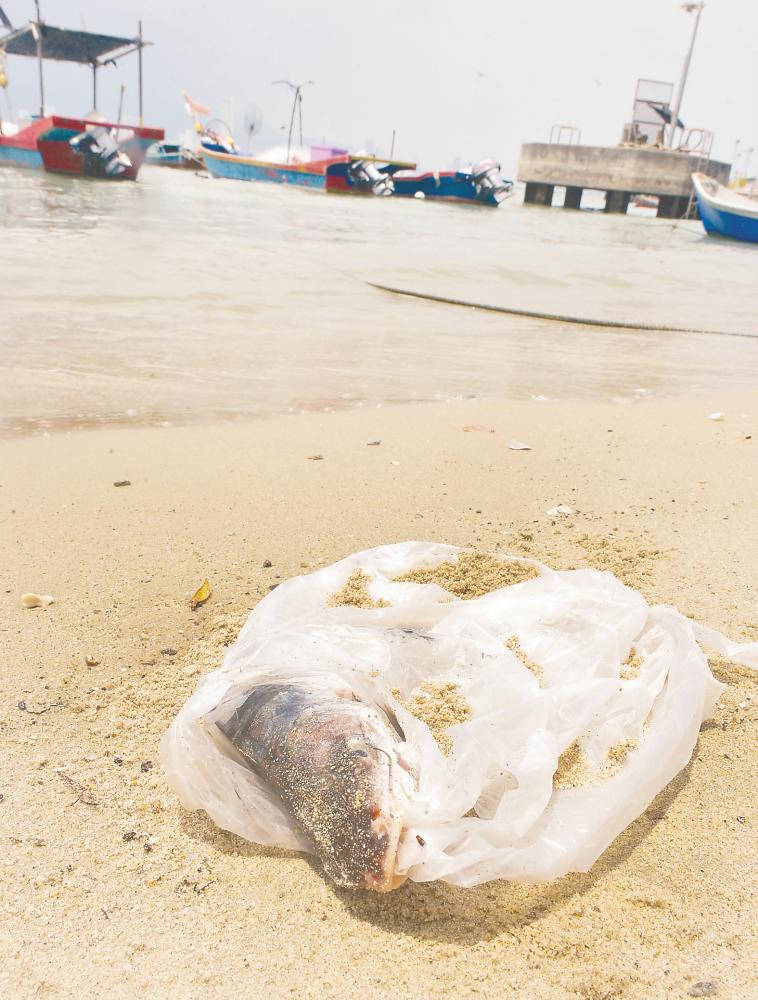PETALING JAYA: The presence of microplastics in the food chain is well documented, with Malaysians not being spared.
However, little is known about the country’s contribution to such pollution, with a portion of the 2.29kg of plastics discarded per person annually ending in the sea.
Now, British technology has come to the rescue.
Housed within the Innovation Hub at Imperial College London, Polymateria Ltd, which was founded in 2015, has invented a proprietary “self-destructing” technology to minimise the entry of microplastics into the food chain.
The company’s chief commercial officer, Richard Horne (pic), told theSun that Polymateria’s technology, called “Lyfecycle Technology” is integrated during the manufacturing stage of common plastic items that cause pollution.
“By providing a solution for plastics that escape proper waste management, we’re working to halt their flow into our oceans.
“Our technology represents a proactive approach to the plastic crisis and prevents ocean pollution before it occurs instead of dealing with its aftermath in our marine environments.”
He said microplastics are found in seafood, primarily because plastics end up in our oceans and are subsequently eaten by aquatic animals.
“Similarly, microplastics generated and discarded on land end up in soil and water, eventually being consumed by animals and resulting in meat products containing such debris.”
Horne said the UK-based Ellen MacArthur Foundation, a charity committed to creating a circular economy designed to eliminate waste and pollution, said its “plastic packaging material flow analysis” showed that some 78 million tonnes of plastics are produced annually.
“Of this, 32% escape collection systems and end up in nature.
“This translates to about 24,960,000 tonnes of plastic waste leaking into the environment annually.
“The staggering figure underscores the urgency of our mission and the critical need for innovative solutions like ours.”
Horne said in 2010, Malaysia produced one million tonnes of mismanaged plastic waste, with up to 370,000 tonnes potentially entering the oceans.
Some 80% of plastic originates on land, propelling the critical need for innovative solutions before it enters the oceans.
He said Polymateria’s technology is time-controlled and tailored to a product’s service life.
It looks and feels like conventional plastic, and is compatible with current recycling streams, he added.

Plastic pollution in oceans leads to death of marine animals through ingestion and getting entangled in fishing nets and other discarded plastic material. – MASRY CHE ANI/THESUN
“If plastics integrated with Lyfecycle Technology escape into the environment, natural elements will trigger a biotransformation process, which will change it into a bioavailable wax.
“This wax is then consumed by microorganisms and fungi, and safely returns to nature without turning into microplastics or toxins.”
Horne said by addressing the problem at its source through manufactured plastic products itself, his company is working towards a future where the accumulation of microplastics in the food chain can be significantly reduced, and one day even eliminated.
In 2023, Polymateria, which has had a presence in Malaysia for five years, signed a partnership with Lotte Chemical Titan (LCT), one of the country’s largest sustainable chemical companies, to introduce Lyfecycle Technology within the plastic resin LCT produced.
Polymateria is also a partner of the International Greentech and Eco Products Exhibition and Conference Malaysia 2023 (iGEM 2023) held in Kuala Lumpur last October, where it exhibited its technology to participants.
Organised by the Natural Resources and Environmental Sustainability Ministry and the Malaysian Green Technology and Climate Change Corporation, iGEM has established itself as Southeast Asia’s leading trade event for green technologies and eco-solutions.
Horne said his company recently launched self-destructing plastic straws and utensils which are being used at Monash University Malaysia.
“Our technology is critical for Malaysia to adopt as some 63% of plastics in the country are not collected or properly disposed of, resulting in unmanaged waste.”
Horne said plastic pollution in oceans leads to the injury and death of marine animals through ingestion and getting entangled in fishing nets and other discarded plastic materials.
“It also disrupts entire ecosystems by altering habitats and introducing harmful chemicals.
“This underscores the urgent need for solutions that address plastic waste on land, which is precisely what Lyfecycle Technology does,” he said.









